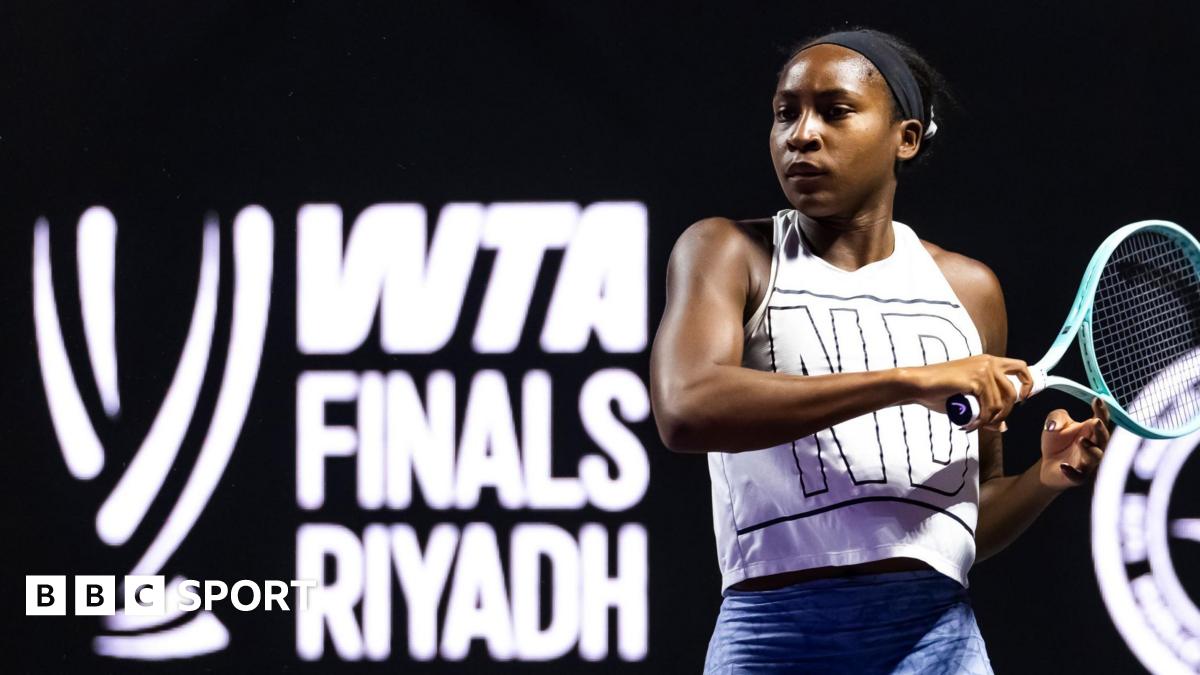The WTA agreed a three-year deal for Saudi Arabia to host a tournament which sees the eight leading women’s singles players and best eight doubles teams of the season compete.
This year’s total prize money of $15.5m (£12m) is the largest in women’s sports history, says the WTA.
Many critics claim the investment into top-class sport is a move to gain legitimacy and deflect attention from controversy over Saudi Arabia’s human rights record, a practice known as ‘sportswashing’.
While there have been reforms – the ban on women driving, for example, was officially lifted in 2018 – concerns about the kingdom’s suitability to host prominent women’s sport events remain.
“There continues to be gender-based discrimination in most aspects of family life, including in marriage, divorce and child custody,” Fakih told BBC Sport.
The Saudi Tennis Federation (STF) was asked by BBC Sport to address these concerns during the WTA Finals, but did not make any of its officials available for interview.
Campaign group Humans Rights Watch say there is no evidence the WTA’s presence is improving women’s rights in Saudi, pointing to an “absence of action” in cases involving women imprisoned for advocating for change.
Manahel al-Otaibi, a fitness influencer and activist, is serving a five-year prison sentence for tweets supporting women’s rights.
“The Saudi authorities continue to detain my sister while they persist in their charade of whitewashing their image and claiming to empower women in front of Western media,” her sister Fawzia al-Otaibi told BBC Sport.
Al-Otaibi’s other sister Mariam remains under a travel ban, while facing restrictions on her speech and access to government services, according to Humans Rights Watch.
“Seeing human rights defenders who were jailed and are still being imprisoned today – cases which were known before the WTA went in – is a good indicator of the lack of progress,” Minky Worden, director of global initiatives at Human Rights Watch, said.
“It’s clear the Saudi authorities don’t feel any meaningful pressure to do anything.”
Muguruza has visited the Kingdom several times since the Finals moved there, going into communities to visit schools and clubs with a focus of attracting more female tennis players.
From these experiences, she says the women she has met are “so happy” the event is taking place on their doorsteps.
Asked if she is fielding concerns about ‘sportswashing’, Muguruza said: “No, I don’t think so.
“That was probably a conversation two years ago or something when people were more unfamiliarised with the sports here, but I think this is over.
“There are so many events here in sports and it has been very successful. I don’t feel that, no.”








